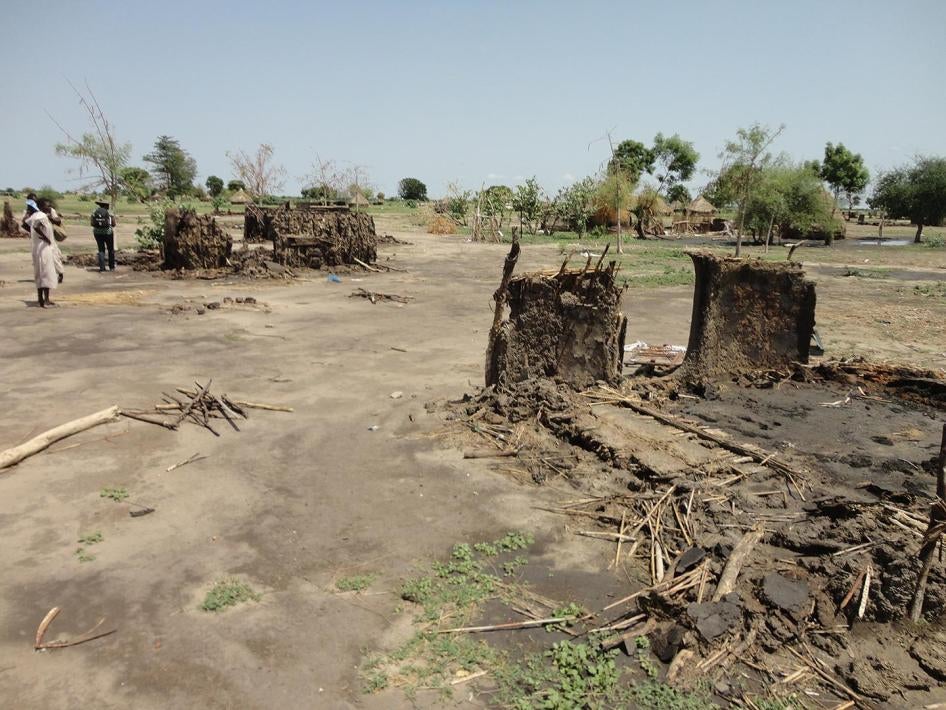The peace agreement that President Salva Kiir finally signed on August 26 – that will hopefully ensure an end to South Sudan’s current conflict – includes justice provisions that offer a chance to break a decades-long cycle of brutal abuses that South Sudanese have endured with no hope of recourse.
During the war, which began in December 2013, fighters on both sides have committed war crimes and possibly crimes against humanity – killing civilians based on their ethnicity, burning homes, raping women and girls, and forcing hundreds of thousands of people to flee their homes.
The comprehensive 2005 peace agreement that ended Sudan’s long civil war and led to South Sudan’s independence didn’t provide criminal accountability for the horrific crimes that occurred during that 21-year conflict, and those responsible for serious abuses were never tried.
But the new peace agreement, which the opposition signed a week earlier, calls for creating a hybrid court staffed by South Sudanese and nationals of other African nations. The court will have the authority to try genocide, war crimes, crimes against humanity, and other serious crimes that violate international law and Sudanese law committed since the current conflict began.
People accused of these crimes will be tried by a panel that includes a majority of judges from African nations other than South Sudan. The prosecutors will also be drawn from other African nations. In addition, the court will be distinct from the national system and have primacy over South Sudan’s courts. Being a government official won’t preclude being put on trial.
These are critical elements for ensuring that investigation and prosecution is independent, impartial, and effective. Human Rights Watch research on the justice system in South Sudan underscored the system’s deep limitations that would create major obstacles to fair, credible cases involving the most serious crimes.
The agreement also says the African Union Commission will take the lead to establish the court and oversee its operations, including decisions on location, funding, appointments, and infrastructure. This will be the first time the AU Commission will establish and administer such a court. It currently supports the Extraordinary African Chambers that is trying the former Chadian dictator Hissène Habré in Senegal for crimes committed during his tenure, but shares that effort with Senegal’s government. An agreement to establish a regional criminal court by the African Union was only adopted in 2014 and will not go into operation until it is endorsed by 15 African countries.
The hybrid court for South Sudan is an important opportunity for the African Union Commission to show it can deliver on its commitment to justice. It will also be crucial follow-up to the AU Commission’s independent commission of inquiry on South Sudan. That commission produced a report that has yet to be made public, although Human Rights Watch and other organizations have repeatedly called for its dissemination to advance the prospects for justice.
To be sure, establishing and managing an effective hybrid court won’t be easy. The court will need to recruit capable staff, secure the funding it needs, and identify a location that ensures the needed security and transparency. It will also have to provide effective protection for victims and witnesses, ensure the rights of the accused, and create a system to provide information about the process to the communities most affected by the crimes.
Cases involving grave crimes are challenging even in the most established justice systems. They tend to involve complex crimes involving multiple incidents in many locations and high-level defendants.
But experience has repeatedly shown that fair, credible prosecutions can build respect for the rule of law, while lack of justice fuels further abuses. South Sudanese activists, victims, and now even the parties themselves have clearly signaled that accountability is needed.
The effort needs to get under way quickly. The AU Commission should move ahead without delay to work with the UN and its other international partners to carry out the agreement and set up a court that can bring justice to the victims of the recent conflict, who have suffered so much.









